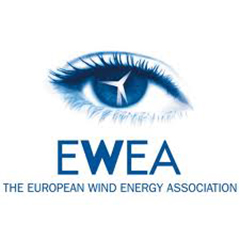Europe risks losing its leadership in wind energy without a clear policy vision for renewables towards 2030.
In 2015, China overtook the EU for total installed wind energy capacity, according to statistics released today by the Global Wind Energy Council (GWEC). China installed almost 3 times as much wind than the EU and now has 145GW total capacity to the EU’s 142GW.
Giles Dickson, Chief Executive Officer of the European Wind Energy Association, said: “China overtaking the EU in wind energy is watershed moment. It sends a powerful message to policymakers: if Europe really wants to be number one in renewables it needs to get its act together. We need a clear EU vision for renewables beyond 2020. And great ambition and clarity from individual Member States.
He added: “China’s ambition on wind now far exceeds Europe’s. Other emerging economies have also made big long term commitments. But today only 6 out of 28 EU Member States have clear commitments and policies for renewables beyond 2020. This has major industrial policy implications. Today Europe’s wind industry has a 40% share of the global wind market and the best technology. But to stay cost-competitive we need a strong domestic market. Otherwise it’ll be China and others that capture the rapidly growing global market – and eventually outperform us in Europe.
And this would hurt us economically. The wind industry supports over a quarter of a million jobs in Europe today, generates 67bn euros annual turnover and is the lion’s share of Europe’s 35bn euros renewables exports. We can’t take this for granted.”
In October 2014, the European Council set a target for the EU to meet at least 27% of its energy needs from renewable energy by 2030.
Last year, the Commission launched a consultation on the revision of the Renewable Energy Directive which will define how Europe will meet its collectively binding 2030 target. The Commission is expected to adopt a proposal at the end of 2016.
Click here to read the EWEA’s full response to the consultation.


























